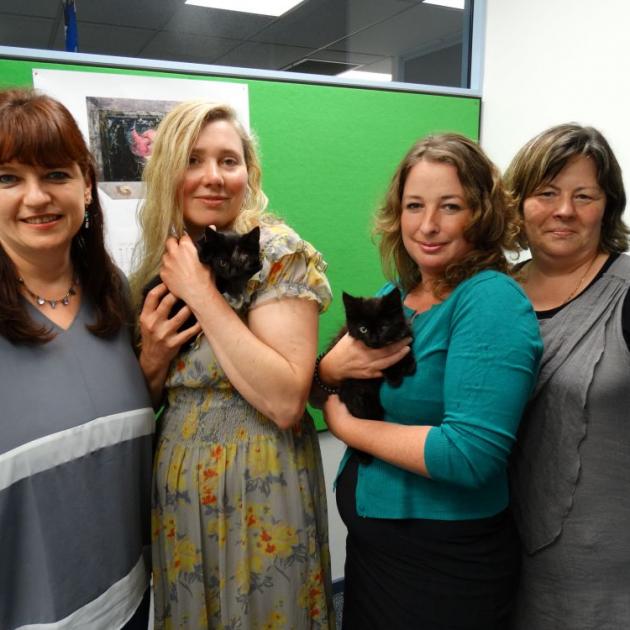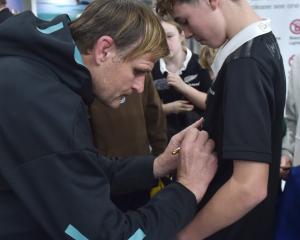
In the year since Animal Rescue Network NZ was founded in Dunedin, the ongoing fight to control the city's feral cat colonies has dominated the lives of group members.
Founder and co-ordinator Ana Andrianova launched the charitable trust in early 2015, to fill the void left by the demise of Dunedin Cat Rescue, and it has since desexed more than 230 cats and kittens.
‘‘As soon as the group started, it just took off, and now it has taken over our lives,'' Ms Andrianova said.
The network's Dunedin trustees - Ms Andrianova, Sharon Pine, Linda Mulholland and retired vet nurse and animal behaviourist Bronwyn Connell - describe themselves as ‘‘cat ladies'', rejecting any negative overtones of the term.
‘‘You get branded a crazy cat lady when you are trying to do something to help the cats, but the people who don't bother to get their animals desexed - who are the ones who create the problem - don't get branded with anything,'' Mrs Connell said.
Ms Andrianova said the organisation's core was a small group of friends, who were doing their utmost to improve the welfare of animals in the city.
The group receives no formal funding, relying on public donations of money and food, and payments for kittens, to do its work.
‘‘Not only are we doing what we can with the cat colonies around Dunedin, we also do everything we can to encourage people to desex their animals,'' she said.
‘‘With the females able to have several litters in a season, cats multiply incredibly quickly."
Working with volunteer fosterers, the network has trapped, desexed and socialised dozens of kittens over the summer, and at present has about 30 awaiting homes.
‘‘It would be very helpful if more Dunedin people would adopt from us - we could use the money to help more animals,'' Ms Andrianova said.
The group is very grateful for the support of Dr Verona Mitchell, of Mosgiel Vet Clinic, who has supported them with low-cost desexing services.
Adult colony cats, which are too feral to be socialised, are desexed and returned to the colony - a strategy which helps to create a stable population and keeps others away.
‘‘This is the most effective way to shut a colony down,'' Mrs Connell said.
The network's trustees are aware of several colonies in the North Dunedin area - particularly around the university, as well as colonies in Halfway Bush, Pine Hill and Corstorphine.
At a time when the Dunedin City Council is reviewing its animal control bylaws, the network's trustees plan to lobby the council to look more closely at cat desexing.
‘‘It would really make sense for the council to put some funding into a desexing programme for cats,'' Miss Mulholland said.
Council environmental health and animal services manager Ros MacGill said the council was generally supportive of the work of network.
However, as control of cats was not a statutory requirement for councils, it could not be introduced into a by-law, she said.
• For more information on the work of Animal Rescue Network New Zealand visit their page on Facebook, email arnnz2015@yahoo.com, or visit the website www.arnnz.org.nz.
BRENDA. HARWOOD@thestar.co.nz











